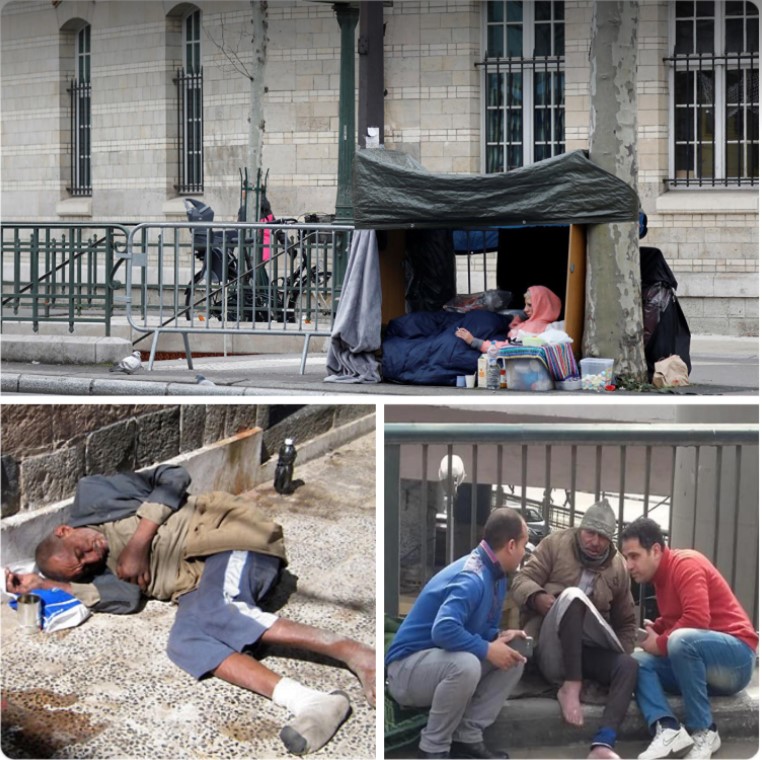Egyptian experts and jurists agreed that the execution of the death sentence against 15 political prisoners at this particular time is terrorism and a warning for the demonstrators who came out demanding the departure of the regime. They pointed out that the authorities delivered several messages through this number of executions, the most prominent of which is terrorising protesters and intimidating them about the fate of anyone who opposes the regime and cheers against it.
On Saturday, the Egyptian authorities carried out the death penalty against 15 detainees in connection with various cases, including two in the “Bibliotheca Alexandrina case,” ten detainees in the “Soldiers of Egypt 1” case, and three detainees in the case of “storming the Kerdasa police station.” The executions came after some 20 Egyptians were killed during September in prisons due to medical negligence and other means including police brutality. This includes three from al-Blida village, al-Ayyat Centre in Giza, and ordinary citizens, Islam al-Australian from al-Mounib, Giza, and the young al-Saidi Awais al-Rawi from al-Awamiya village in Luxor.
Egyptian human rights defender Khalaf Bayoumi says, “The executions represent the regime’s response to the Egyptian street demonstrations that [started] two weeks ago, almost daily.” He adds, “This response carries a message of terror to everyone that he will not hesitate or stop killing his opponents.” He affirms that “the implementation of the provisions is a message to all spectrums of the Egyptian people, and all its opponents, that it will not stop continuing to implement its policy and execute anyone who violates it.”
As for the human rights defender, Muhammad Zaree, he expresses his regret that “the message that the regime wants to convey to everyone, including the Muslim Brotherhood, is that there is [a stricter] enforcement of rulings against its members.” He adds that there is another message for the demonstrators who are demanding justice peacefully: “They were afraid of the same fate.” He continues: “The regime has nothing but bullets, to arrest and prosecute Egyptians, and it has nothing to offer except violent and harsh measures against citizens, which has been the situation that has continued since the arrival of Abdel Fattah al-Sisi.”
Zaree pointed out, “This is the advice that his advisors give him, including the professor of psychiatry, Dr. Ahmed Okasha, who demanded al-Sisi keep citizens in severe austerity so that they have reasons to retreat to their work, do not practice any political action and do not think anything.” He explains that he implements “violent measures aimed at terrorising and silencing citizens despite the harsh economic conditions.”
The Egyptian human rights defender believes that the “Saturday executions are messages to the Brotherhood that you have more young people in prisons, and others outside the prisons may be potential suspects in the future.” “The message is that the state has nothing but violent measures against those who go out to demonstrate and revolt, or politically disagree with the al-Sisi regime, and we are no longer surprised about a large number of killings, executions, and the imprisonment of Egyptians.”
For its part, the Brotherhood condemned the implementation of the death sentences and considered them at this time when demonstrations are taking place against the Egyptian regime as a “message of terror for the youth,” describing the conviction as “politicised.” He said that most of these cases “were confessions extracted under torture, and their verdicts were issued without fair procedures.”
On social media, a wave of angry grief prevailed among opposition activists and the detainees’ families, who condemned the death sentences carried out against political opponents. Activists emphasised that the balance of justice in Egypt has turned upside down. The hand of justice leaves the hardened criminals, killers, and thieves, and holds accountable those who demand freedom and democracy for the people. Activists confirmed that the verdict was issued three years ago, and it was due to be implemented since that time, but it was not implemented until today. The complainants indicated that the timing of the ruling’s implementation now confirms that they are retaliatory provisions and that they are an attempt by the regime to deter and scare the people once again. To undo the angry demonstrations that swept Egypt during the past two weeks.
The United Nations Office for Human Rights has previously said that the past few years have witnessed successive cases for convicted individuals amid disturbing reports of the absence of a proper legal process in Egypt. A number of those individuals have exhausted all legal measures and now face the risk of imminent execution. The office urged the Egyptian authorities to stop all executions and review all cases related to death sentences, in line with Egypt’s international human rights obligations, to conduct credible, independent, and impartial investigations into allegations of torture, and to take the necessary measures to ensure that violations of due standards and fair trials are not repeated.





Recent Comments